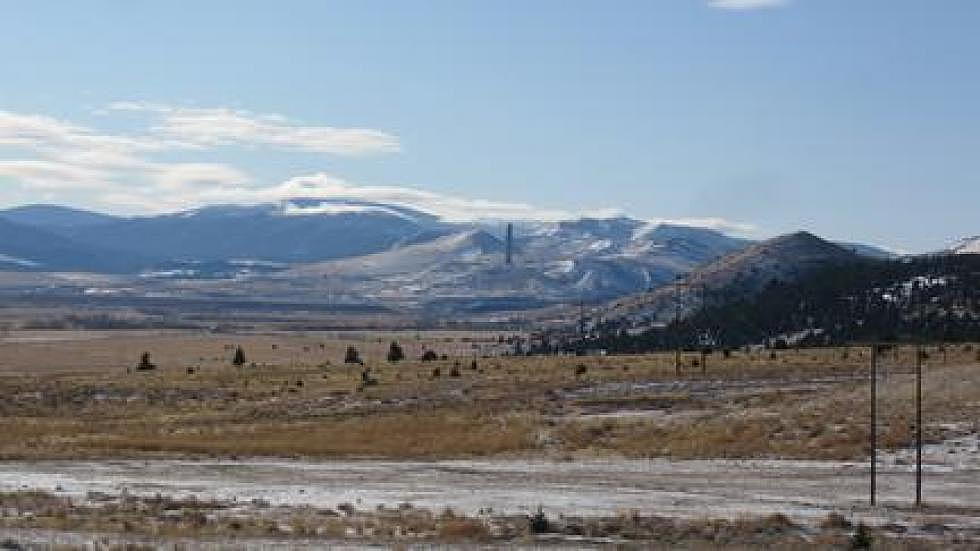
Montana woman advocates for EPA funding with story of heartbreak in Anaconda
A national coalition of environmental, union, recreation and business groups – including Montanans – called on Congress Wednesday to reject the Trump administration’s proposed 31 percent cut to the U.S. Environmental Protection Agency as it works to approve the federal budget.
Congress has a Friday deadline to pass a funding plan to stave off a government shutdown this weekend.
That plan includes the nearly one-third reduction in the EPA’s operating budget and would lead to the shutdown of environmental cleanup efforts and enforcement at sites nationwide.
Thus the effort to put a human face on the budget cuts by a coalition of groups that includes the Center for American Progress, Environmental Defense Fund, Moms Clean Air Force, Indiana Wildlife Federation, Natural Resources Council of Maine, AFGE National Council of EPA Locals #238 and Fort Berthold POWER.
Among those voices is that of Melissa Nootz, who is now a Livingston resident after a difficult few years living in Anaconda amid the Superfund cleanup effort there.
Anaconda is part of the nation's largest geographically Superfund cleanup site, where work to clean up a century of mining and smelting stretches from the former Milltown Reservoir just outside Missoula to Butte. The process has been ongoing for nearly four decades.
In her testimonial, Nootz said she and her husband were drawn to Anaconda both because of a job offer and because it offered the prospect of affordable housing. They knew about the Superfund cleanup before making the move.
What they couldn’t know, she said, was the hidden costs and the physical and emotional damage they would suffer.
Nootz said she researched everything she could about the risks of living in Anaconda before making the move, but no one could tell her for certain if her own home would be polluted with heavy metal residues.
So, nine years into their marriage, Nootz and her husband took “a second set of vows,” she said. “We promised each other to obey all the recommendations gathered from all the guiding agencies to the letter: scrubbing windowsills, shoes off upon entry, wash hands before every meal, wash hands after playing outside, never eat food dropped on the ground, keep the sod intact, remediate soils before gardening and on and on.”
“It’s not so bad,” she thought. “I can do this.”
So the couple moved “to a new house in a new town. It’s all really good, and I’m really happy,” Nootz remembered.
Then everything changed.
“Our yard’s soil is tested,” she said. “There are so many organizations involved. It’s confusing. I’m not always sure where to go for what answers. The results are in. The numbers are high and are exceeding the limits for arsenic. They dilute the data by using averages, hotspots don’t matter, and now only the boulevard is going to be remediated.
“It sounded so straightforward: If the levels of heavy metals were high, our yard was supposed to be remediated.”
The county offered to haul away the toxic dirt and provide the Nootzes and other families with “clean soil” if they did the labor to dig up the contaminated ground.
Her husband began digging, alone because Nootz was pregnant with their second child.
But she lost the baby and immediately wondered if the miscarriage was related to living in a toxic environment. Her health care providers had no answers for her.
She became pregnant again. Again, she lost the baby.
“I wonder again if this could be related to living here,” Nootz said. “My health care providers tell me that sometimes these things happen without a reason. They pause, adding that testing for causes typically doesn’t begin until after three consecutive losses.”
When they did have a child, a routine test when she turned 1 showed the little girl had “a concerning amount of lead” in her blood.
“We were devastated,” Nootz said. “It sounded so straightforward: If we followed the recommended protocols, we were supposed to be safe. We were near the top of the priority list. Our yard was supposed to be remediated.”
And so they left Anaconda and moved to Livingston and the promise of another new job and new home.
“We no longer live near a Superfund site,” Nootz said. “I’m not fragile. And I never broke. I am simply a mother, just like the many mothers before me and beside me.”
Once safely away from the toxic ground, Nootz decided to learn if heavy metal exposure could have caused her miscarriages.
“The short answer is yes, they can be linked,” she said.
Thus her rekindled activism, warning of the dangers of environmental pollution left unchecked – a danger increased by the president’s proposed cutbacks at the Environmental Protection Agency, she said.
The environmental coalition has collected the testimony of Nootz and other women and men nationwide on a new website, OurEnvironment.org, with the intent of highlighting Americans who can share “why we need to strengthen – not weaken – enforcement of our nation’s bedrock environmental laws.”
There does not, however, appear to be any momentum in Congress to restore the president’s proposed cuts to the EPA.
The only budget concession proposed by Republicans as of Wednesday afternoon was a six-year funding plan for the Children’s Health Insurance Program, which covers nine million children nationwide.
The bill also would not address the future of the so-called Dreamers, the hundreds of thousands of young immigrants brought to the United States illegally as children.
